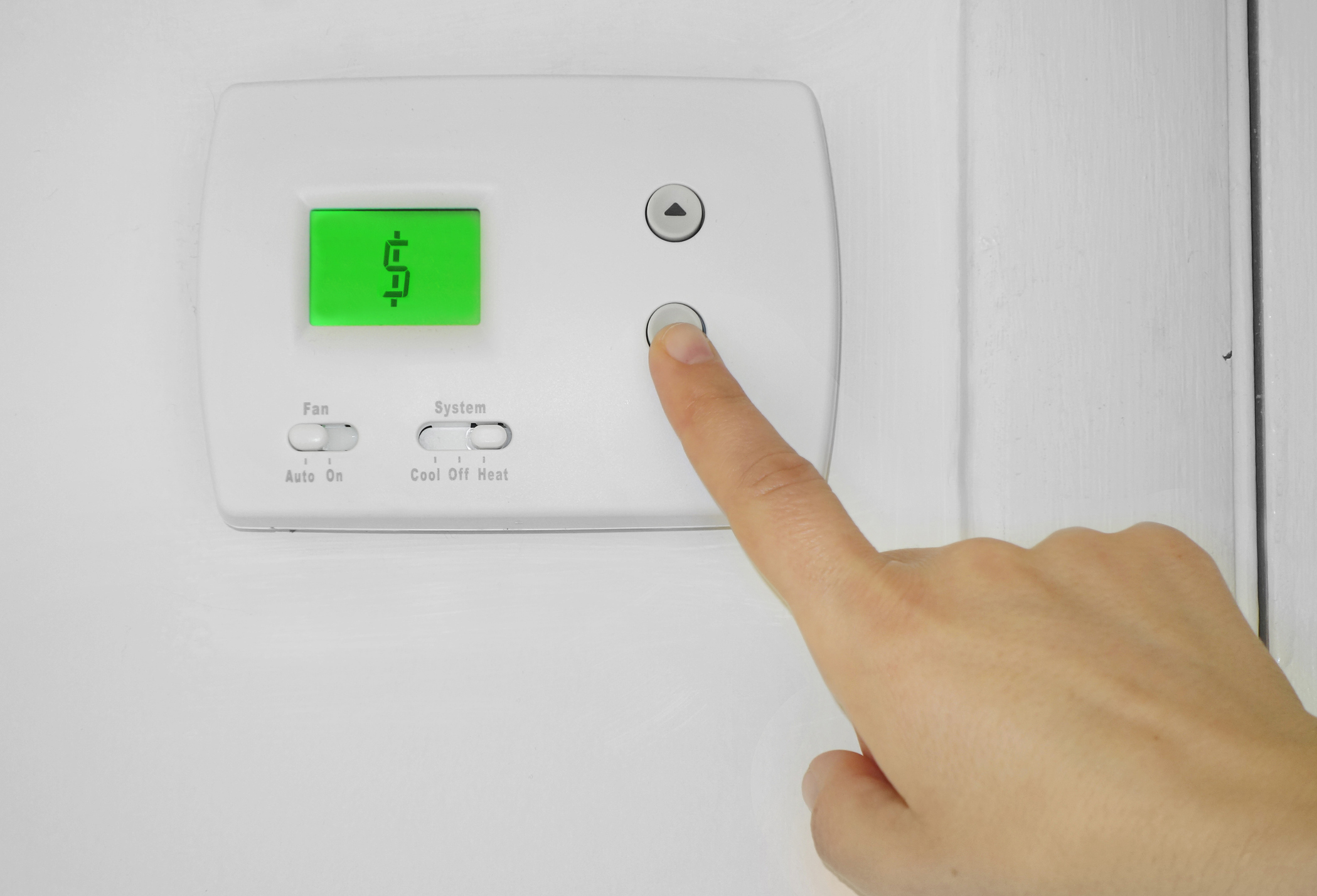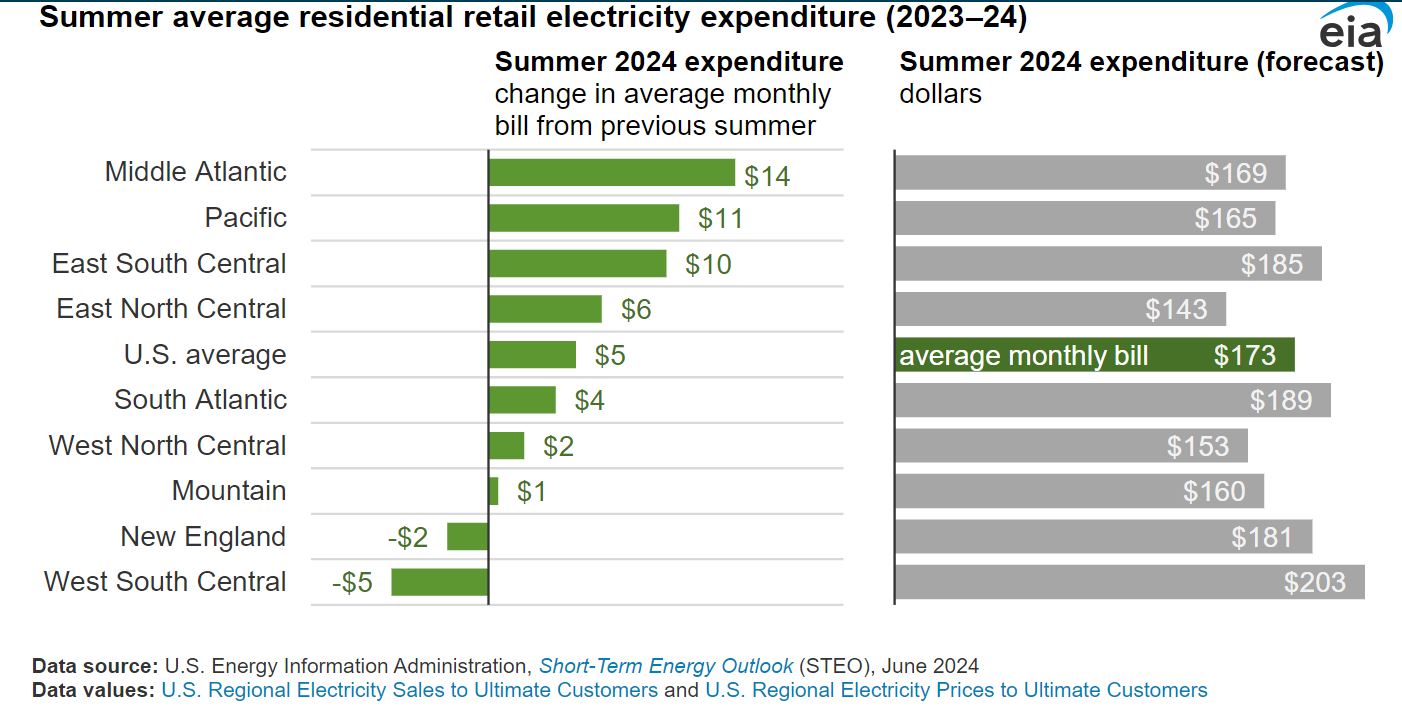High Electric Bills? Here's How You Can Save
High electric bills this summer can be blamed on sweltering temperatures and rising demand. Here's what you can do to save.


Profit and prosper with the best of Kiplinger's advice on investing, taxes, retirement, personal finance and much more. Delivered daily. Enter your email in the box and click Sign Me Up.
You are now subscribed
Your newsletter sign-up was successful
Want to add more newsletters?

Delivered daily
Kiplinger Today
Profit and prosper with the best of Kiplinger's advice on investing, taxes, retirement, personal finance and much more delivered daily. Smart money moves start here.

Sent five days a week
Kiplinger A Step Ahead
Get practical help to make better financial decisions in your everyday life, from spending to savings on top deals.

Delivered daily
Kiplinger Closing Bell
Get today's biggest financial and investing headlines delivered to your inbox every day the U.S. stock market is open.

Sent twice a week
Kiplinger Adviser Intel
Financial pros across the country share best practices and fresh tactics to preserve and grow your wealth.

Delivered weekly
Kiplinger Tax Tips
Trim your federal and state tax bills with practical tax-planning and tax-cutting strategies.

Sent twice a week
Kiplinger Retirement Tips
Your twice-a-week guide to planning and enjoying a financially secure and richly rewarding retirement

Sent bimonthly.
Kiplinger Adviser Angle
Insights for advisers, wealth managers and other financial professionals.

Sent twice a week
Kiplinger Investing Weekly
Your twice-a-week roundup of promising stocks, funds, companies and industries you should consider, ones you should avoid, and why.

Sent weekly for six weeks
Kiplinger Invest for Retirement
Your step-by-step six-part series on how to invest for retirement, from devising a successful strategy to exactly which investments to choose.
Most Americans should expect to pay more for their electric bills and other utilities this summer. June's heat wave has plunged over 100 million Americans into extreme heat, according to the National Integrated Heat Health Information System (NIHHIS). From April 2021 to April 2024, electric prices have increased by 24%, and you’ve no doubt been feeling the strain on your wallet. Here's a look at what's causing this rise in energy prices and what you can do to save money.
Where are electric bills rising the most?
The Mid-Atlantic, Pacific and Eastern South will see the greatest monthly increases in electric bills, according to a recent report from the U.S. Energy Information Administration (EIA). Although New England and West South Central states will see declines in their monthly electric bills, they will still pay over the national average.

Why are energy prices rising?
Increased costs are due to several factors, including increased demand, especially among energy-intensive data centers. Electricity consumption is expected to grow 4.7% in the next five years, up from the 2022 forecast of 2.6%. “Data centers whose chips run artificial intelligence are especially energy-intensive, and more are coming,” Jim Patterson writes in the Kiplinger Letter. “Data centers in general account for 4.6% of demand. By 2026, that figure stands to rise to 6%."
From just $107.88 $24.99 for Kiplinger Personal Finance
Become a smarter, better informed investor. Subscribe from just $107.88 $24.99, plus get up to 4 Special Issues

Sign up for Kiplinger’s Free Newsletters
Profit and prosper with the best of expert advice on investing, taxes, retirement, personal finance and more - straight to your e-mail.
Profit and prosper with the best of expert advice - straight to your e-mail.
He also shares that increased construction of high-tech manufacturing facilities, appliances switching from natural gas to electricity and more electric vehicles are also driving up electricity consumption. But along with this increased demand comes supply constraints. And this all results in higher rates on electric bills.
“How much higher depends on a lot of factors, such as your region, the price of natural gas (the leading fuel source for generation) and how quickly government officials try to ramp up renewable power,” Patterson writes.
2024 one of the hottest summers ever
This summer's heat waves will surely cause you to crank up your air conditioning and, in turn, your power bill. The more energy you use to combat those roasting temperatures, the more money you’ll inevitably spend.
From June through August, temperatures are expected to reach 2 degrees above historical averages across more than half of the country, Accuweather notes. Experts believe that there’s a good chance this summer could be one of the hottest on record in the U.S., especially from the Rockies to the East Coast.
“We expect electricity consumption will grow in all major consuming sectors this year, but especially in the residential sector, which we expect will increase by 4%” reports the U.S. Energy Information Administration in the March edition of its Short Term Energy Outlook. “Much of the forecast year-over-year growth in residential electricity occurs during the summer months of 2024.”
How to cut your electric bill summer 2024
While you can't directly control how much your electricity costs, you can control how much you use. One of the best ways to save on energy bills, and also one of the easiest, is to keep your thermostat at the right temperature. According to the U.S. Department of Energy (DOE), the smaller the difference between indoor and outdoor temperatures, the lower your overall cooling bill will be.
They recommend keeping your thermostat set to 78 degrees in the summer months while you're at home, and even higher while you're away. You can easily control the temperature in your home by opting for a smart thermostat. "Programmable thermostats will avoid any discomfort by returning temperatures to normal before you wake or return home," states the DOE.
This is also a great time to invest in more efficient heating and cooling systems, like a heat pump. There's solid evidence that a heat pump will help most people save money over standard air conditioning. While there are pretty steep upfront costs for installing a heat pump, your state could soon be launching an energy rebate program to help you save on those costs.
Wisconsin just became the first state to launch the Home Efficiency Rebate (HOMES) program, which could cover 100% of the costs (up to $5,000) to purchase and install a heat pump or other energy-efficient home improvement, depending on household income.
There are a few other ways to stay cool this summer. Check out our 12 tips to stay cool without air conditioning, which include maximizing shade in your home, prioritizing good insulation and properly using fans to beat the heat. Did you know your fan should rotate in a different direction depending on the season? Particularly, counterclockwise in the summer months? By reading the article, you'll find more information on how to save money — and not sweat to death in those record-setting temperatures.
Related Content
Profit and prosper with the best of Kiplinger's advice on investing, taxes, retirement, personal finance and much more. Delivered daily. Enter your email in the box and click Sign Me Up.

Erin pairs personal experience with research and is passionate about sharing personal finance advice with others. Previously, she was a freelancer focusing on the credit card side of finance, but has branched out since then to cover other aspects of personal finance. Erin is well-versed in traditional media with reporting, interviewing and research, as well as using graphic design and video and audio storytelling to share with her readers.
-
 The New Reality for Entertainment
The New Reality for EntertainmentThe Kiplinger Letter The entertainment industry is shifting as movie and TV companies face fierce competition, fight for attention and cope with artificial intelligence.
-
 Stocks Sink With Alphabet, Bitcoin: Stock Market Today
Stocks Sink With Alphabet, Bitcoin: Stock Market TodayA dismal round of jobs data did little to lift sentiment on Thursday.
-
 Betting on Super Bowl 2026? New IRS Tax Changes Could Cost You
Betting on Super Bowl 2026? New IRS Tax Changes Could Cost YouTaxable Income When Super Bowl LX hype fades, some fans may be surprised to learn that sports betting tax rules have shifted.
-
 How Much It Costs to Host a Super Bowl Party in 2026
How Much It Costs to Host a Super Bowl Party in 2026Hosting a Super Bowl party in 2026 could cost you. Here's a breakdown of food, drink and entertainment costs — plus ways to save.
-
 3 Reasons to Use a 5-Year CD As You Approach Retirement
3 Reasons to Use a 5-Year CD As You Approach RetirementA five-year CD can help you reach other milestones as you approach retirement.
-
 How to Watch the 2026 Winter Olympics Without Overpaying
How to Watch the 2026 Winter Olympics Without OverpayingHere’s how to stream the 2026 Winter Olympics live, including low-cost viewing options, Peacock access and ways to catch your favorite athletes and events from anywhere.
-
 Here’s How to Stream the Super Bowl for Less
Here’s How to Stream the Super Bowl for LessWe'll show you the least expensive ways to stream football's biggest event.
-
 The Cost of Leaving Your Money in a Low-Rate Account
The Cost of Leaving Your Money in a Low-Rate AccountWhy parking your cash in low-yield accounts could be costing you, and smarter alternatives that preserve liquidity while boosting returns.
-
 This Is How You Can Land a Job You'll Love
This Is How You Can Land a Job You'll Love"Work How You Are Wired" leads job seekers on a journey of self-discovery that could help them snag the job of their dreams.
-
 We Inherited $250K: I Want a Second Home, but My Wife Wants to Save for Our Kids' College.
We Inherited $250K: I Want a Second Home, but My Wife Wants to Save for Our Kids' College.He wants a vacation home, but she wants a 529 plan for the kids. Who's right? The experts weigh in.
-
 4 Psychological Tricks to Save More in 2026
4 Psychological Tricks to Save More in 2026Psychology and money are linked. Learn how you can use this to help you save more throughout 2026.